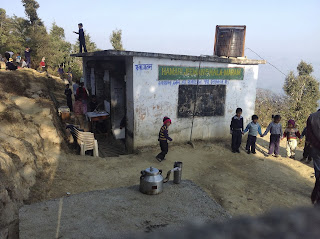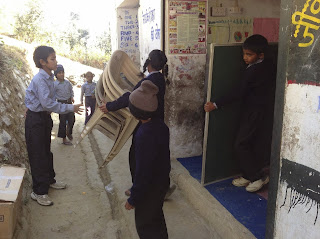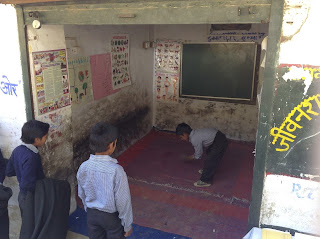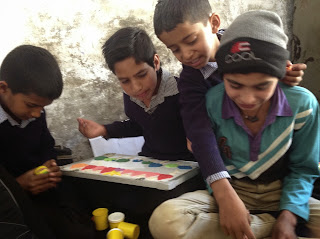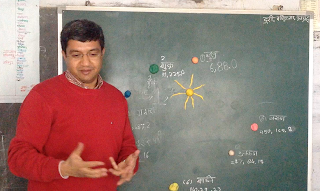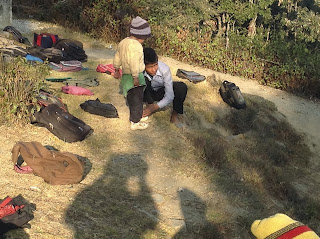In Dec 2013 I was in Almora (a major city in the Himalayan state of Uttrakhand) for 10 days conducting workshops on 21st century life skills in small schools and organisations in and around Almora. My experience in one of the schools:
50 km from Almora is village Maram. In Maram, Jeevanshala is a tiny school run by two passionate teachers – Shankar and Sandeep. Though well qualified for a government job, in 2001 they decided to start Jeevanshala (JS) and have shaped the school since. They run the school out of three small rooms, which were originally constructed as roadside shops (see photos).
JS has 55 students ranging from Kindergarten to class 5. Those who can afford pay Rs 150 (£1.50) a month to keep JS running. The total monthly income generation is around Rs 5,000 (£50). The school does not get any government support. The four teachers at JS hence earn a pittance of around Rs 1,000 (£10) per month.
Compare this to Rs 12,000 to 15,000 that the teachers in the government run schools in the vicinity earn but where parents don’t want to send their kids! As I understand, the three government run primary schools in the vicinity get a monthly grant of Rs 150,000 odd each but all three school together have only seven students. The villagers prefer sending their kids to JS because they believe JS is doing a better job of educating their children.
I spent two days at JS with class 4 and 5 students. My focus was on developing their self-expression and creativity using tablets and multimedia. Thanks to the generosity of some people JS has got 5 Android Tablets and the children are familiar with them. Though Maram does not have Internet connectivity so JS teachers come to the city of Almora once in a couple of months and download apps there.
The students told me that they were learning about the solar system so I split them into groups of 2-3 and asked each group to research one planet, write about it, make a model using play dough, stand up and speak about the planet they researched and I demonstrated to them how a short film could be made using a tablet.
We also made a stop-motion animation on local environment. The children researched about local crops, fruits, birds etc and depicted the same using play dough. We then discussed the impact of loss of trees on the local environment and converted all this into a stop-motion animation and a short film.
The objective was to demonstrate to the students and the teachers how they could use tablets and multimedia to create ‘performances of understanding’ i.e. instead of regurgitating rote knowledge in end-of-year exams they could create a ‘portfolio of multimedia artifacts’ to deepen understanding in a more engaging manner.
To enable this workshop, besides two tablets for the school, I was also carrying a USB microscope and we observed skin, hair, nail, teeth etc and discussed about hygiene (dental hygiene was very poor). I finished the workshop with some aerial photography using the remote control helicopter with camera that I had taken for them. Most of the kids had never seen a man-made object flying (other than on TV or in books).
I found the children at Maram to be highly enthusiastic, very independent and curious to learn. They start and end the day by themselves – opening/locking the classrooms, cleaning them and dusting the mats etc. The senior students conduct the assembly – prayers and exercises, and in case the teachers are absent they even start teaching the younger kids and give them homework.
My days at Jeevanshala were interspersed with discussions with the teachers on what would be a relevant curriculum and how it could be imparted in most effective and engaging ways. I plan to build on this in the coming months and return to Maram soon to conduct more workshops on weaving Timeless Lifeskills into the curriculum and use of ICT to enhance the learning experience.

